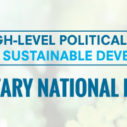
Search
Frances Stewart: ‘OPHI is making a huge contribution’

Frances Stewart is Professor Emeritus of Development Economics at the Oxford Department of International Development (ODID). She was Director of ODID from 1993-2003 and Director of the Centre for Research on Inequality, Human Security and Ethnicity (CRISE) at the department between 2003 and 2010. Professor Stewart is a member of OPHI’s Advisory Committee.
How do you think the international context has changed regarding multidimensional poverty since the launch of OPHI ten years ago?
There has been a huge acceptance of the value of the concept of multidimensional poverty, and that is very important. Even the international financial institutions, which favour monetary poverty, now recognise it as an additional indicator. We also know that the UNDP has accepted it as a way of measuring poverty and that many countries are increasingly using it. So, in terms of attitudes toward non-financial poverty and the index itself, I think there has been huge progress. What about the other elements of the changing context? Well, clearly one of the contexts is that poverty has been reduced quite substantially over these years. That is an important part of the context, and, possibly partly as the result of that and partly for many other reasons, there is much more emphasis now on inequality. There is also increasing emphasis, of course, on the environment. So, there is some movement away from the emphasis on poverty, which was present when OPHI started, and some movement in new directions.
What is your opinion of OPHI’s work over this period and its contribution to the changes you mentioned?
In terms of the change in the acceptance of the MPI, OPHI has been amazingly influential. OPHI singlehandedly got the concept accepted; not only the concept, but the Alkire-Foster methodology is now very widely accepted as an established methodology. And, clearly there is much greater use of the MPI, which is often due to OPHI itself going around the world helping countries measure MPIs. You can see the acceptance in the SDGs, where multidimensional poverty is now recognised as important, along with monetary poverty. At the country level particularly, almost all of the credit must go to OPHI for the acceptance of the Alkire-Foster methodology. In short, OPHI has made and is making a huge contribution.
Where do you see the multidimensional agenda going next and where do you see OPHI in the future?
I think more policy work is needed. It would be great for OPHI to get a better sense of how different types of policies contribute to reducing MPI. For example, how do the many types of cash transfers, or microcredits, or spending on primary health care, and so on, contribute to reducing multidimensional poverty? Many of these questions have been studied in relation to monetary poverty, but very little has been done in relation to the MPI. I think OPHI could make a big contribution there and in looking at the critical needs for policy changes in order to reduce multidimensional poverty. Why has MPI fallen generally, and why has it fallen more in some contexts than in others? What are the specific policies which accounted for this? To what extent is the macro-environment or distributional issues responsible?
In terms of the change in the acceptance of the MPI, OPHI has been amazingly influential. OPHI singlehandedly got the concept accepted; not only the concept, but the Alkire-Foster methodology is now very widely accepted as an established methodology.
I think there is a lot of work that could be done there – careful empirical work to understand the contributions to changes in MPI in terms of policy and other contexts. That is one issue for future work. It would also be very good if OPHI could get more national statistical offices measuring MPIs. It shouldn’t be down to OPHI to go around trying to measure it; measurement should be integrated into national statistical offices’ work. This may be happening in a few places, but it needs to occur in a much more general way. Just as almost every statistical office now has a mandatory poverty measure, every statistical office should have an MPI measure. That is an institutional change that OPHI should be pushing.
Another need is to gain even more acceptance of the MPI in official measures so that when the World Bank produces structural adjustment programs or the International Monetary Fund (IMF) lays down mandatory policies for countries to gain IMF assistance, it is not only data on, and reductions in, monetary poverty that is demanded but also reductions in MPI. Indeed, it would be good if MPI displaced monetary poverty entirely. That would be a big and very ambitious achievement.
Then, I think it is necessary and desirable for OPHI to move on to new issues. One of them is inequality. I hear there has been one preliminary paper on it, maybe more, and I know several people have been working on this issue and there is a lot of controversy about what is the best way of doing it. Measurement of multidimensional inequality is a big issue on which it would be good to get the same sort of wide acceptance for a multidimensional measure that we have achieved for the MPI. In other words, to gain similar acceptance for what we might call an MII, or a multidimensional inequality index.
This would be a very important and challenging issue. It is one thing to get the multidimensionality of inequality accepted, and another to get agreement about the elements of non-monetary aspects of inequality and how to measure them properly. How do we define and measure inequality in education or health, for example? And how do we best put them into a single index?
Another priority, in my view, is that OPHI needs to focus even more on the environment. Environmental issues are going to be increasingly important and will dominate much of the development debate. A big issue is going to be how to incorporate aspects of the environment into OPHI’s measures.
There will be difficulties since some environmental indicators are best measured at the national level or community level and not at the individual level. So if we examine individual poverty, there may not be much difference among individuals – they all suffer from the same air pollution – but we can differentiate across communities within a country or across countries on some indicators. On some indicators, we may have to take even broader measures at a regional or global level, for example for climate change and the impact of climate change, and how this affects poverty. Living in an uncertain environment is also an aspect of poverty, which is something that is likely to be best measured largely at the country as well as the individual level.
Published in Dimensions Special Issue – June 2018
















